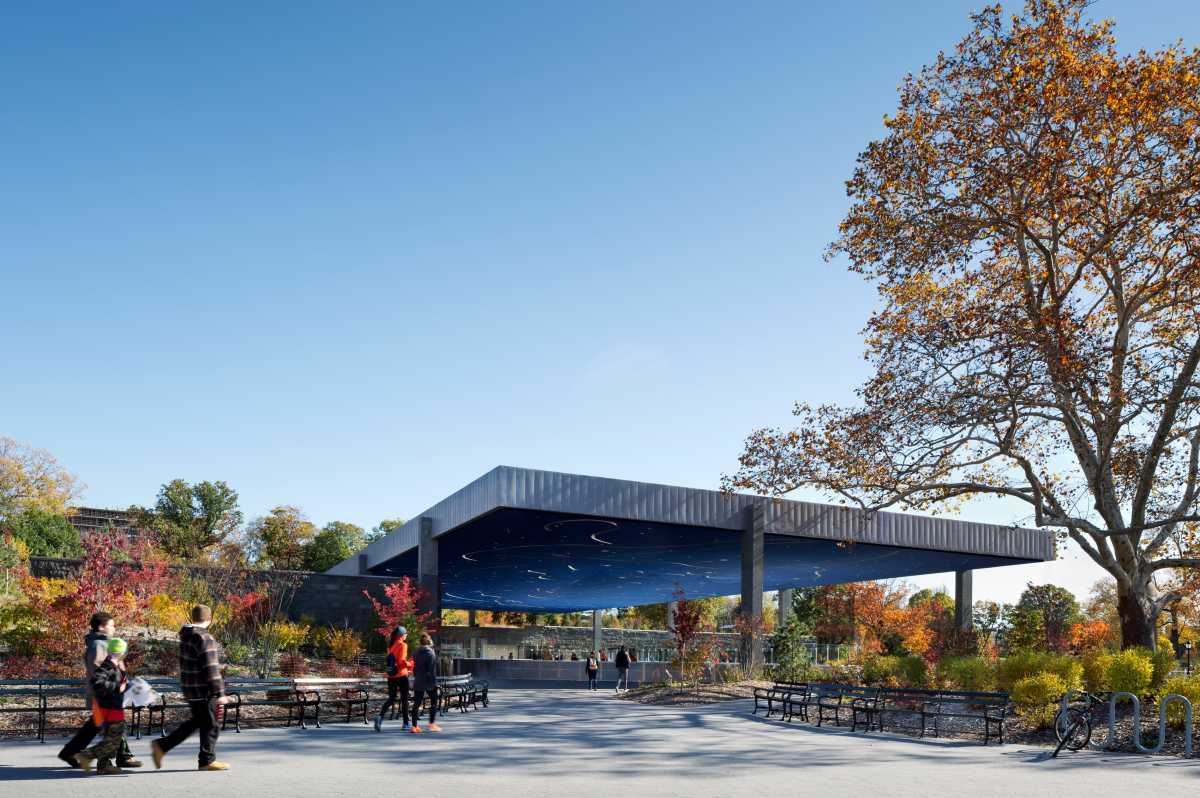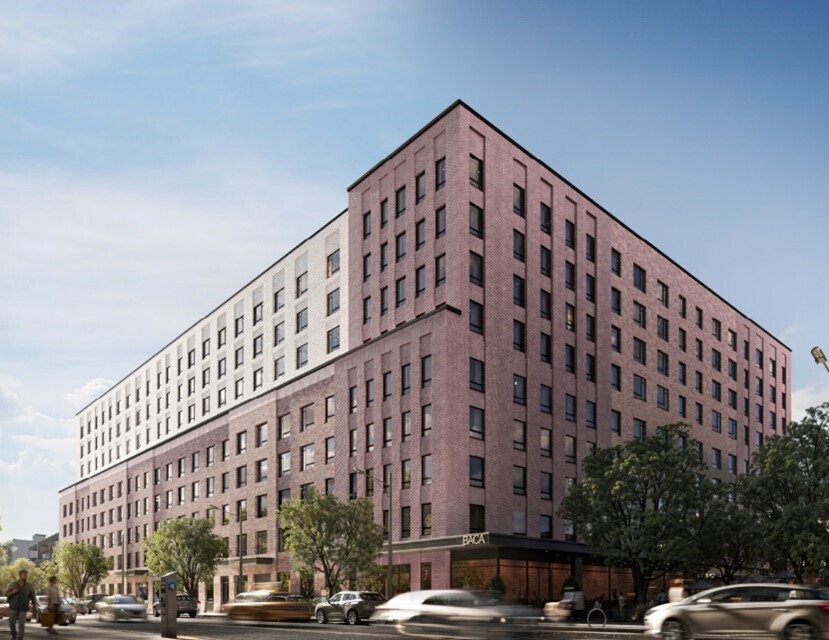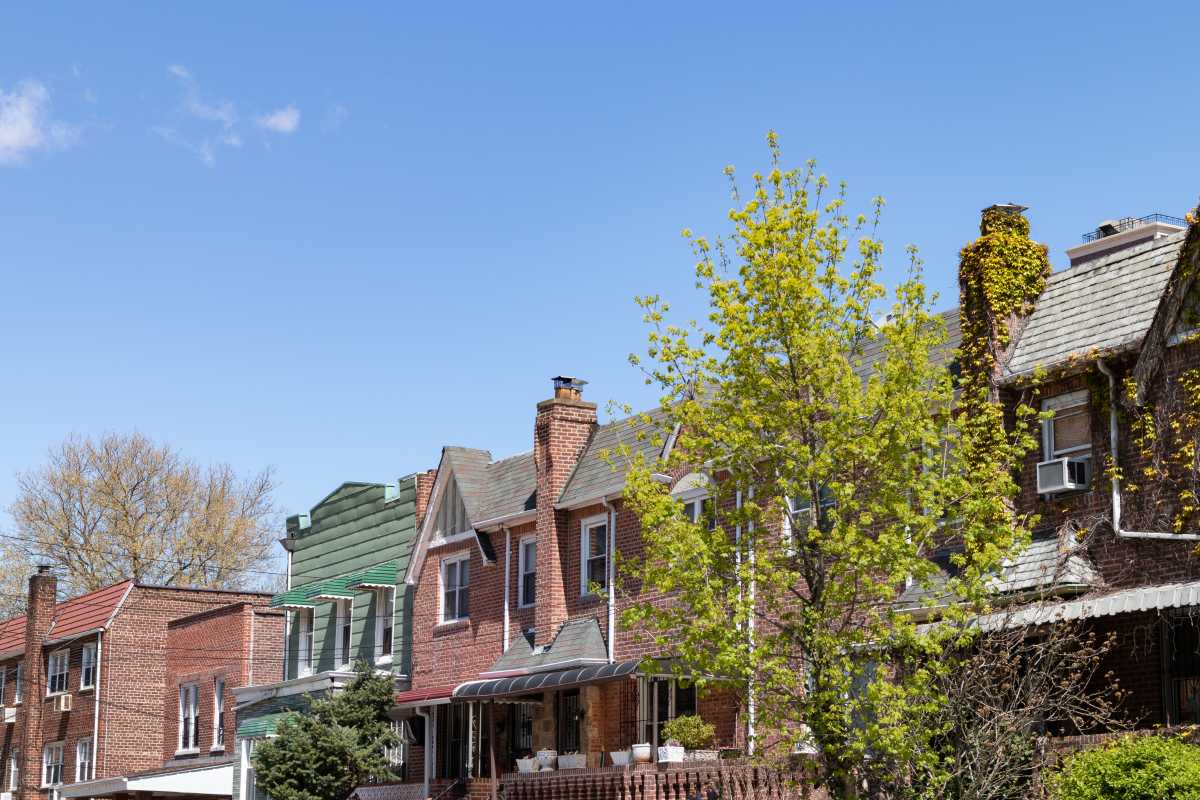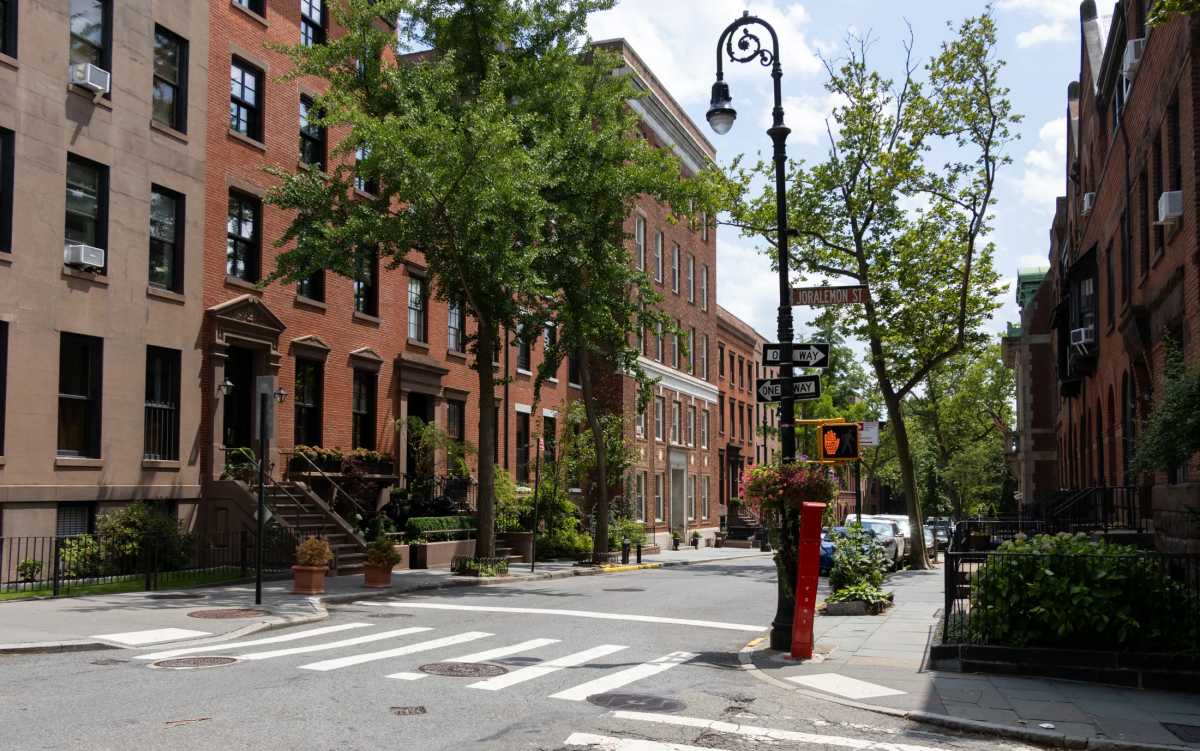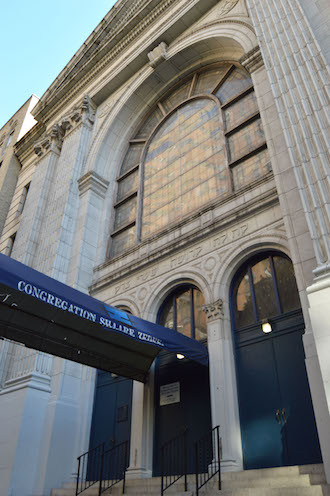
BY JACKSON CHEN | In the ongoing donnybrook over the future of a 1920s synagogue building threatened with demolition, a neighborhood coalition is charging that Congregation Shaare Zedek on West 93rd Street has received a higher offer than that being paid by a developer that plans a 14-story building for the property. The congregation’s leadership has repeatedly said there is no other offer on the table and it is in a binding contract with the developer.
In April, neighbors of the synagogue, located at 212 West 93rd Street, were informed of plans to demolish it and replace it with a new building. While no official plans have been filed, nearby residents have learned the new building will house a three-story synagogue and 11 stories of condo units above.
The West Nineties Neighborhood Coalition, a residents organization formed in opposition to the proposed plans, has made pleas to the Landmarks Preservation Commission (LPC) and Community Board 7 for an emergency landmark designation. In response, representatives of the congregation have argued it is financially suffering and a new synagogue, in partnership with the developer, Ornstein Leyton Company, is the only way it can hold onto the property and maintain a home there.
According to Michael Firestone, the congregation’s president, the current building has no American with Disabilities Act compliance and some portions of the interior are in disrepair or unusable. He added that the congregation cannot afford to heat or cool the building, which limits its usability for several months of the year. The structure, which seats around 1,400 people, is far too big for the congregation’s 80 families, Firestone said.
With no plans filed with the Department of Buildings, CB7 has no formal role at this point in the debate over the building’s future, but its meetings have served several times as the platform for debate between the two sides.
“We realize it’s a complex situation,” said Ronna Blaser, a member of the coalition. “We definitely understand their institution, but we also value the building as a piece of the history of the Upper West Side and the Jewish community.”
At the most recent CB7 Preservation Committee meeting, on October 13, the coalition charged that Shaare Zedek has received a new, higher offer from another Upper West Side congregation, which would preserve the existing building.
According to Julie Jacobs, a member of the West Nineties Neighborhood Coalition, that provides a win-win resolution of the ongoing controversy.
“If you don’t value the building in its current state because it’s not up to code, because it doesn’t suit your plaster of needs, there’s another synagogue willing to keep the building intact and bring it up to code,” Jacobs said to Shaare Zedek’s leadership.
Manhattan Express could not independently confirm information about another congregation’s interest in the building or the price it is willing to pay.
Shaare Zedek’s Firestone has, on several occasions, told Manhattan Express there never was another offer and that the congregation, in any event, is locked into a contract with Ornstein Leyton that cannot be breached.
Firestone added that all the questions Shaare Zedek faces from its opposition were raised by its own congregants, who have since voted unanimously in favor of the demolition and new construction.
Rosalind Paaswell, a former Shaare Zedek president who is now an honorary trustee, said the proposal is the congregation’s best option after an exhaustive consideration of all its choices.
“We explored so many of those options because our chief impulse was to save the building and continue our work in there,” Paaswell said. “We had an engineering study done, we had a discussion with another religious institution to come join us… we discussed all kinds of arrangements.”
According to Firestone, the congregation concluded the only feasible route was reaching out to Ornstein Leyton to help it remain financially solvent. He noted that Shaare Zedek is also responsible for the 16-acre Bayside Cemetery in Queens, where congregation funds are put toward upkeep.
Paaswell urged CB7 to consider the survival of the synagogue’s faith community rather than the physical structure itself.
“In Judaism, buildings aren’t so important, they are places we use to pursue our religious and community life,” Paaswell explained. “But we move, we move a lot. When a building comes down, it’s not considered a tragedy.”
But the coalition argued the building’s historical merits should be decided by the LPC, and urged CB7 to press for that.
“If you don’t request a hearing or don’t write a letter asking for a day in court, that will never be decided,” Jacobs said. “It’s for the Landmarks Preservation Commission to decide. If you don’t write a letter, it may never see its day in court.”
While the coalition has submitted a request for LPC consideration of the building, the commission has said only that the property may merit designation and could be considered at a later date. At this point, the commission is conducting additional research on the building.



